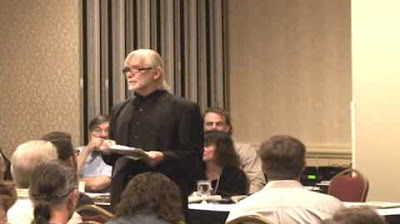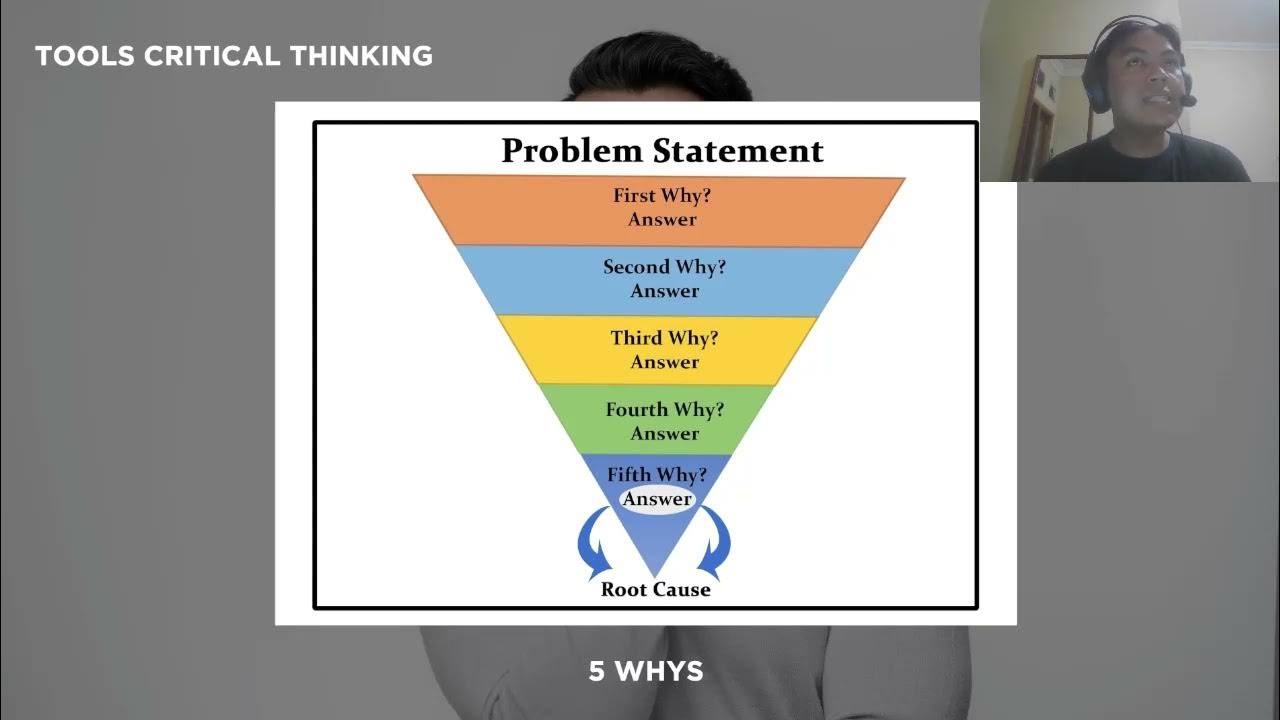How to Win a Debate Without Even Trying | Socratic Questioning
Summary
TLDRThis script explores Socrates' renowned questioning technique, aiming to enhance critical thinking skills. It emphasizes the importance of pre-arguing to clarify definitions and assumptions, and suggests asking under what circumstances one might change their mind. The script delves into Socratic questions that seek clarification and uncover flaws in arguments, distinguishing between the causes and reasons behind beliefs. It encourages considering alternative perspectives and examining the implications of beliefs. Finally, it advises reflecting on any overlooked questions and maintaining epistemic humility to foster more profound understanding and effective debate.
Takeaways
- 😯 The script emphasizes the importance of critical thinking, inspired by Socrates' method of questioning to challenge beliefs and assumptions.
- 🤔 Pre-arguing is crucial for clarifying definitions and assumptions to ensure a productive discussion.
- 🗣️ Socrates often began discussions by asking for definitions of key terms to align the conversation and avoid misunderstandings.
- 🤝 Asking 'under what circumstances would you be wrong?' helps determine if someone is open to a genuine discussion or just defending their stance.
- 🧐 The 'ignoramus and clarification' technique involves asking for clarification to help uncover potential flaws in an argument without being confrontational.
- 🔍 Distinguishing between the causes and reasons for beliefs is important; causes may be emotional, while reasons are more logical and open to challenge.
- 🌟 Considering alternative perspectives and experiences can open minds to new possibilities and understanding.
- 📚 The 'reductio ad absurdum' argument is a powerful tool for examining the implications of a belief to reveal contradictions or absurd outcomes.
- 🔄 Reflecting on the questioning process itself by asking if there are any unaddressed questions or areas that need further clarification.
- 💡 The script concludes that critical thinking is a skill developed over time with practice, emphasizing the need for epistemic humility and continuous learning.
Q & A
What is the main focus of the video script about?
-The main focus of the video script is on Socrates' famous questioning technique and how it can be used to enhance critical thinking, clarify definitions and assumptions, and engage in productive discussions.
Why did Socrates believe critical thinking was important in ancient Athens?
-Socrates believed critical thinking was important because he observed that many people held beliefs they could not justify, and he aimed to teach Athens the skill of critical thinking to challenge these unexamined beliefs.
What is the significance of pre-arguing in the context of the script?
-Pre-arguing is significant as it involves checking underlying definitions and assumptions before engaging in a debate. It helps to ensure that both parties are discussing the same concepts and can lead to more productive and relevant discussions.
How does the script suggest one should approach an argument about the existence of God with a deist?
-The script suggests that one should first clarify the definitions of key terms like 'God' to ensure both parties are discussing the same concept. It highlights the importance of understanding whether the deist believes God is actively involved in the universe or not, as this affects the relevance of arguments used.
What is the purpose of asking 'Under what circumstances would you be wrong?' at the beginning of a discussion?
-Asking 'Under what circumstances would you be wrong?' helps to establish whether someone is open to a good faith discussion or just defending their position. It also provides insight into the factors that motivate someone's belief.
Why does the script suggest asking 'What do you mean by that?' during an argument?
-Asking 'What do you mean by that?' is suggested to clarify the meaning of terms and expose potential flaws in an argument without making the other person defensive. It allows the person to self-identify inconsistencies or misunderstandings in their position.
What is the difference between asking about the 'cause' and the 'reason' for someone's belief according to the script?
-The script differentiates between 'cause' and 'reason' by suggesting that 'cause' refers to the emotional or pragmatic factors that lead to a belief, while 'reason' refers to the logical arguments that support it. Understanding this difference can help in determining which aspects of a belief can be challenged through logic.
How can considering alternative perspectives enhance critical thinking, as discussed in the script?
-Considering alternative perspectives can enhance critical thinking by opening the mind to possibilities that one might not have considered. It encourages empathy and understanding of different viewpoints, which can lead to a more nuanced and comprehensive evaluation of an argument.
What is the 'reductio ad absurdum' argument mentioned in the script, and how is it used?
-The 'reductio ad absurdum' argument is a philosophical technique where the implications of a position are examined to show that it leads to a contradiction or absurd consequences. It is used to challenge the validity of a belief by demonstrating that accepting it leads to an untenable outcome.
Why is it important to ask about the implications and consequences of a belief, as per the script?
-Asking about the implications and consequences of a belief is important because it allows for a deeper understanding of the belief's logical consistency and practical ramifications. It helps to identify potential flaws and ensures that the belief is not only internally coherent but also aligns with broader logical and moral considerations.
How does the script suggest one should reflect on their own questioning process?
-The script suggests reflecting on one's own questioning process by considering whether all aspects of an argument have been sufficiently examined, whether any questions have been overlooked, and if there is a need for further clarification. This reflection involves epistemic humility and an ongoing commitment to critical self-examination.
Outlines

This section is available to paid users only. Please upgrade to access this part.
Upgrade NowMindmap

This section is available to paid users only. Please upgrade to access this part.
Upgrade NowKeywords

This section is available to paid users only. Please upgrade to access this part.
Upgrade NowHighlights

This section is available to paid users only. Please upgrade to access this part.
Upgrade NowTranscripts

This section is available to paid users only. Please upgrade to access this part.
Upgrade NowBrowse More Related Video

The Best Learning Method in History: 2,400 Years Ahead of Its Time

Who was Socrates and what was his Philosophy?

The Best Learning Tool in History - 400 years ahead of its time!

How To Ask Questions That Prompt Critical Thinking

29th Critical Thinking Conference Keynote part 5

Ep. 2 | Kacamata Kritis: Melihat Lebih Dalam
5.0 / 5 (0 votes)